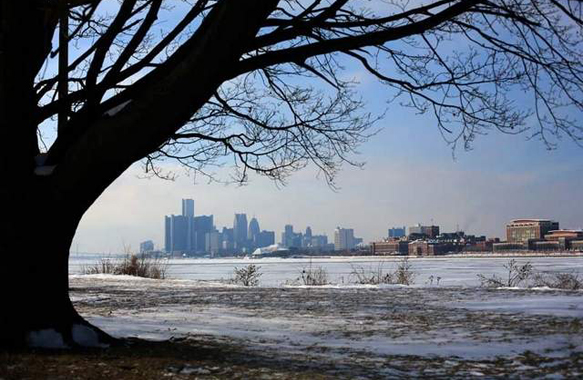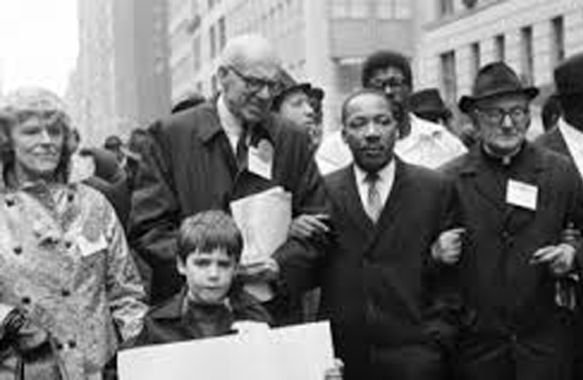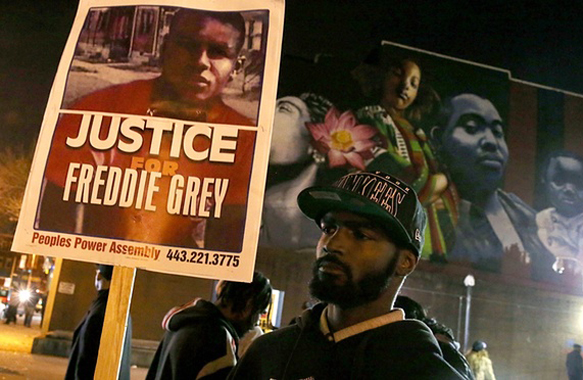Photograph; A report released today by New Detroit showed there are significant racial gaps in education and income across metro Detroit, with Latinos and African Americans lagging behind whites and Asian Americans. / January photo by Kimberly P. Mitchell/Detroit Free
While the study reveals the situation is dire, the reaction to the research is perhaps more startling. Read the statistics. Contemplate the dilemma. Think through what might be done to correct the inequality. Then, peruse on and what will you see? The thought that it is unlikely that there will be riot? What does this statement say about the speaker or more so, “we, the people?”
Might we wonder? Why is this a concern and who gave voice to the issue? Whom or what does this represent?
Shirley Stancato is the speaker. She is the President and CEO of New Detroit. The question is did Ms. Stancato mean to reduce anxiety, or possibly promote interaction? We cannot know what we cannot see, but possibly there is a clue in the organization’s mission? You decide and tell me.
[New Detroit] mission, to achieve social and economic equity, requires that we identify common concerns and develop specific action steps. Our success in these efforts in large part depends on us having a shared base of understanding on how it is we interact with one another.By Niraj Warikoo | Originally Published at The Detroit Free Press. March 12, 2014Study Shows Huge Income, Education Gaps Among Races in Metro Detroit
A report released today by New Detroit showed there are significant gaps in education and income among races across metro Detroit, with Latinos and African Americans lagging behind whites and Asian Americans.
“The economic segregation is very clear,” said John Ziraldo, a New Detroit board member and CEO of Lighthouse of Oakland County, a social services group in Pontiac.
In the city of Detroit, 56% of Latino adults don’t have a high school diploma, the highest percentage among racial and ethnic groups in the tri-county region. In contrast, 76% of Asian American adults in Oakland County have a college degree, the highest rate in the region. In Oakland, 42% of whites have college degrees.
There’s also a wide income gap across racial lines.
In Oakland County, the region’s wealthiest county, 47% of Asian-American households make more than $100,000 a year, the highest among all groups in the region. In the tri-county region, Asians had the highest percentage of households that make more than $75,000 a year.
White households in Oakland County were the second wealthiest group in the region, with 33% making more than $100,000 a year. In Wayne County, 22% of whites make more than $100,000, and 21% do in Macomb.
In comparison, just 17% of black households in Oakland make more than $100,000, 7% in Wayne and 10% in Macomb.
On the other side of the economic spectrum, 44% of black households in the city of Detroit make less than $25,000, the highest percentage among racial groups in Wayne, Macomb, and Oakland counties. About 32% of Latinos in Wayne County make less than $25,000.
The survey by New Detroit, a nonprofit group, was based on 2007 to 2011 U.S. census figures. New Detroit was formed in the aftermath of the 1967 riot to help bridge the racial divide.
Shirley Stancato, president and CEO of New Detroit, said the region needs to make sure that the racial “divide doesn’t get any bigger.”
“We continue to live in segregated communities,” she said.
The report also showed that though Detroit’s population is 84% black, 56% of people who work in the city are white while 39% of the workers are African American. The data indicate that many African Americans in the city are commuting to the suburbs for jobs, which shows the importance of transportation access, Ziraldo said.
Home ownership among whites in metro Detroit is about 80%. But just 34% of African Americans in Wayne County own homes, 45% in Oakland County and 51% in Macomb.
Leaders with New Detroit said the education gap is worrisome, given the importance of education to finding jobs. In the city of Detroit, just 5% of Latinos and 11% of African Americans have a college degree.
Although there are still significant racial gaps in metro Detroit, Stancato said, it’s unlikely there will be another riot like in 1967 because of improved communication among leaders.
“I don’t think we’re ever going to be at that point again,” she said.
Contact Niraj Warikoo: nwarikoo@freepress.com or 313-223-4792. Follow him on Twitter @nwarikoo.koo.












Leave A Comment